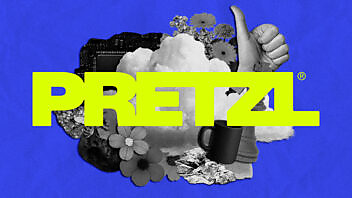As content marketing gains momentum, we find that we’re not having to work quite as hard explaining the principles to prospective clients. But one objection does keep popping up that we thought would have died off by now: “Why should we give content away that tells people exactly how to do what we do? Won’t people just do it for themselves and cut us out of the picture?”
Here’s how we address this understandable but misplaced concern:
- You know far more than you think– If your success really rests on a body of knowledge that can be captured in a white paper, your business is already built on sand. it can’t and it isn’t. Information is only one source of the value you deliver. Experience,expertise, intellectual property and methodology all play a role.
Take some time to map the richness of the expertise that lives inside your company. Then think about which areas will be of most value to your prospective customers. That’s your sweet spot.
- Knowing something isn’t the same as doing it – We can tell someone everything we know about how to write a fantastic eBook. But we’ve been doing this a long time and we can still do it better than anyone we teach. If we didn’t have confidence in that, we’d stop letting people download The Content Marketing Workbook.
Realise that your company has a depth of expertise that can’t be replicated with a bit of book-learning. Knowing how to apply that learning is a much harder thing to replicate.
- People don’t WANT to do what you do, they want to find someone who’s great at doing it – Your prospects have a day job. They don’t actually have a secret desire to become experts at video distribution or application management or cockroach prevention. They just want to find someone who is an expert. That’s the power of content marketing: it doesn’t just claim expertise, it demonstrates it.
Understand that your area of expertise is only a small part of your customer’s world. It means everything to you but is only one pain-in-the-arse of many to them. It may be critically important but it’s still not their universe.
- Sharing your expertise doesn’t mean sharing ALL of your expertise– Deciding to engage in content marketing does not forfeit your right to decide exactly what to share and what to hold back. If you believe you’ve got some proprietary knowledge that gives you a competitive advantage, don’t spill it all over the web. But you can still allude to it and discuss the insights that inform your special sauce.
Decide exactly what knowledge in your company represents precious intellectual property. The list will be shorter than you think. But protect it with your life. Often it’s in the specifics of methodology and delivery rather than the principles that inform them (and the principles are the stuff people really want to understand).
- Your weakest competitors will copy you anyway– That’s why they’re so weak. People can tell the difference between an authentic expert and a wannabe. And by the time the also-rans have ripped off your latest insight, you’ll have moved on to the next one. This isn’t to say you should let the competition see everything that makes you special – just don’t worry so much about it. They’re not that good.
Keep an eye on the competition but don’t obsess about them. Leaders lead.
- You have no choice– If you decide to clutch all of your expertise close to your chest like a greedy gambler with a full house, your competitors will share theirs and market circles around you. They’ll get the interest, the leads and the new business. Because people will see them as the expert and see you as just another company.
Bite the bullet and capture your company’s crown jewels, then put them to work, helping your prospects do their jobs better.
That last point is really the bottom line. Content marketing is the portion of your marketing plan that actually works. The rest is window dressing. You can be shy about sharing your company’s brilliance with the world and wonder why nobody cares about you; or you can be generous with your goodies and watch the world beat a path to your door.
What’s your experience? Do you come across this concern a lot? Are you effective in overcoming it? Let us know, below.
————————–
photo: creative commons: kwhitten

Enjoyed this article?
Take part in the discussion








Comments
David Ash September 25th, 2011
Brilliant work Doug. I agree with every point. Not many people will be inclined to reverse-engineer your output back to the method that went into creating it.
Doug Kessler September 26th, 2011
Thanks David.
That’s exactly how we see it: the risk of ‘reverse engineering’ is remote.
But the benefits that come from sharing expertise are limitless.
Glenn February 18th, 2013
Nice post Doug!
I am no doubt that sharing some of your best work is the fastest way to demonstrate that you are the “authority” in your own niche area.
As you quite rightly say, holding back some of your special knowledge that can be used later is good business practice.
Thanks for taking the time to share your thoughts 🙂
Glenn